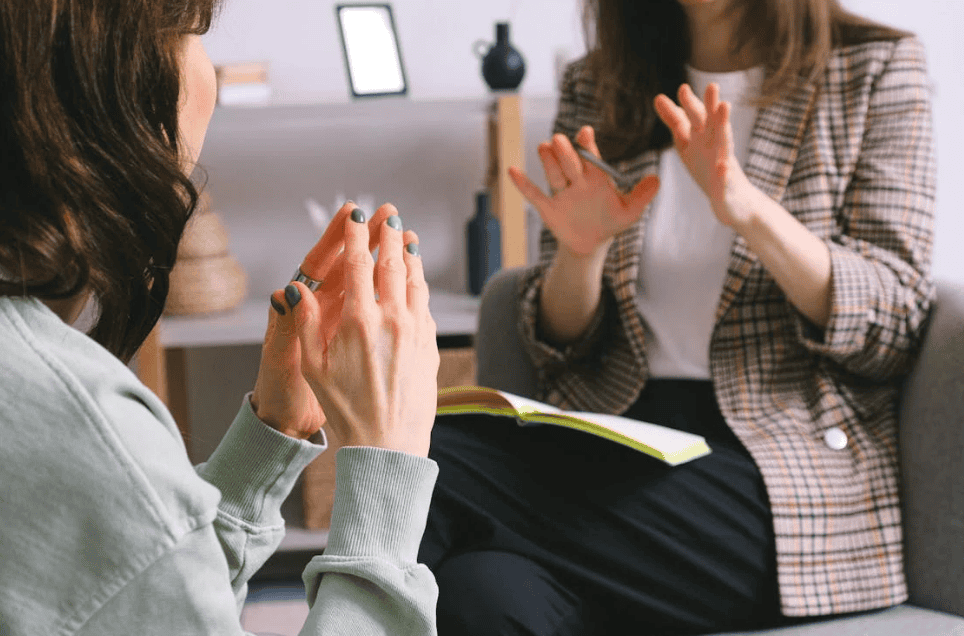Psychologists spend a lot of time and effort assisting other people, which sometimes includes dealing with very intense and emotional sessions. Can psychologists unwind after a long workday?
How do psychologists recharge their mental and emotional batteries after a hectic session? Seeking alternate ways of ‘cooling-off’ is critical to achieving balance and ensuring their productivity does not suffer.
In this blog, we will look at some imaginative, useful, and new methods that psychologists who feel exhausted after a busy session may use to take care of themselves and relax.
How Can Psychologists Unwind After A Hectic Session?
Engage in a creative hobby
Creative leisure can easily be seen as a kind of restorative rehabilitation for psychologists after a busy day, only that this time around, they don’t engage in their professional responsibilities as much.
This could be painting or instrumental practice, gardening, and other forms of craft work that allow them to express themselves while taking a break from professional affairs. Working with a pencil and a notebook or canvas, such as drawing or painting, can provide a respite during a busy day and reinstate joy and harmony to their time.

Take a calming walk in nature
After an intense session, psychologists get an opportunity to take a calm walk in nature, which is a good break from the intensity. Whether going for a short walk in the local park, enjoying the views on a short hike, or even spending a quiet moment in a garden, looking out at nature helps eliminate stress.
The crisp air creates a great opportunity to step away, rest, and center themselves again. It’s a pretty simple way to relieve some stress after a busy day in the office.
Practice mindfulness or meditation
For psychologists, mindfulness or meditation provides a meaningful way to relax and re-focus after a busy session. These practices suggest a state of quietness that assists them in detaching from the remnants of their work and being in the here and now.
Whether through narration, deep breathing, or even without any sound in a quiet place, mindfulness separates work from leisure. It creates a space to ensure peace despite one’s busy diary.
Enjoy a favorite book or movie
From the psychologist’s perspective, it is pleasant and easy to relax and recover after a hectic session during downtime by reading a good book or watching a movie. Psychologists love how stories affect their patients, so whether it is a novel or their favorite film, a good story allows them to forget these pressures and relax.
Such an easy and effective leisure not only amuses but also helps induce a break, an opportunity to rest and return to one’s place with a different outlook.
Create a relaxing home routine
Developing a peaceful routine at home helps psychologists switch off from a hectic day after work and spend some quality time away from work. Simple things like lighting up candles, playing soft music, or making a warm drink can create a perfect atmosphere to relax.
Further, small luxuries—for instance, having some CBD gummies from https://cbdfx.com/collections/cbd-gummies/ during a relaxed evening—can also make the feeling of relaxation stronger. By developing such habits, psychologists establish a consistent and safe environment in which they can completely relax and replenish themselves.
Connect with friends or loved ones
For psychologists, dedicating time to interact with friends or people who are important to them is a great way to relax and recuperate after a busy session. A simple phone call, sitting together at a table, and enjoying each other’s company are activities that redirect attention from work and back to the social network.
Sometimes, having to chat or just being with people who are there to support them can be soothing, a gentle reminder of what moderation is all about and how precious personal relations are.
Set aside time for journaling
Dedicating time for journaling creates a great solo retrospective space, especially for practitioners following a challenging session. Recording one’s ideas, events, or just the description of one’s day on paper assists in clearing the mind and addressing emotions that may not have been fully felt.
It provides them with an opportunity to look inward and allows them to express themselves and feel as if the day has come to an end. Therefore, as part of their daily routine, they can unwind with personal insight by turning journaling into a sustainable habit.
Why Is It Important For Psychologists To Unwind After A Hectic Session?
For professional psychologists, it is important to detach from the work and regain the banality both at and outside it.
This is owed to the fact that the job requires a deluge of attention and involves a stream of emotions that are eventually exhausting.
Practicing intentionally, in such an instance, helps them reset their mind and prepare for the next phase of care.
And, of most importance, making time for relaxation contributes to their health, enabling them to provide much-needed care.

Factors Psychologists Should Ensure After A Hectic Session
Psychologists should take adequate steps to transition from the responsibilities of their profession to a more balanced state.
Deciding when to limit oneself from work so that one does not spend too much time thinking about the session after it ends is one example of boundaries that should be established.
It also helps to have a brief course of action, which one can regard as an opportunity to wind down, whether that course of action is an activity or a program.
For instance, putting together one’s notes or attending to tasks that need to be done helps provide closure, making it possible to detach from work and focus on re-energizing oneself for the following day.
Summing It Up
Taking a break after a stressful session is necessary for psychologists to keep their sanity, concentration, and efficiency. It could be through art, meditation, or engaging with friends; these small efforts to relax can improve their day. Incorporating breathing exercises and other such simple relaxation techniques aids in helping a psychologist recuperate and begin the day afresh.
In the end, looking after oneself seems to be a vital factor in caring for others in the best possible way while also having a satisfying personal life.


